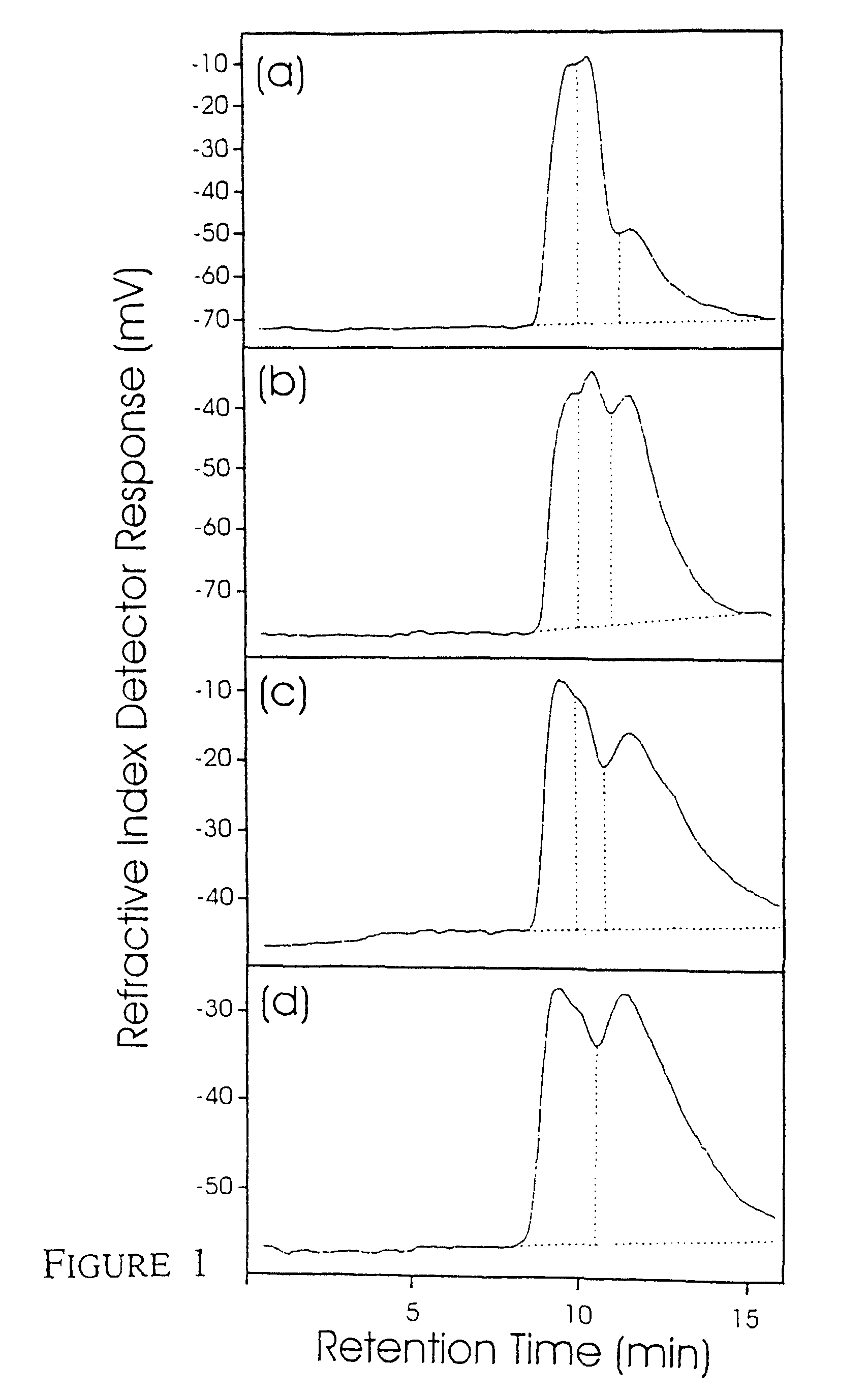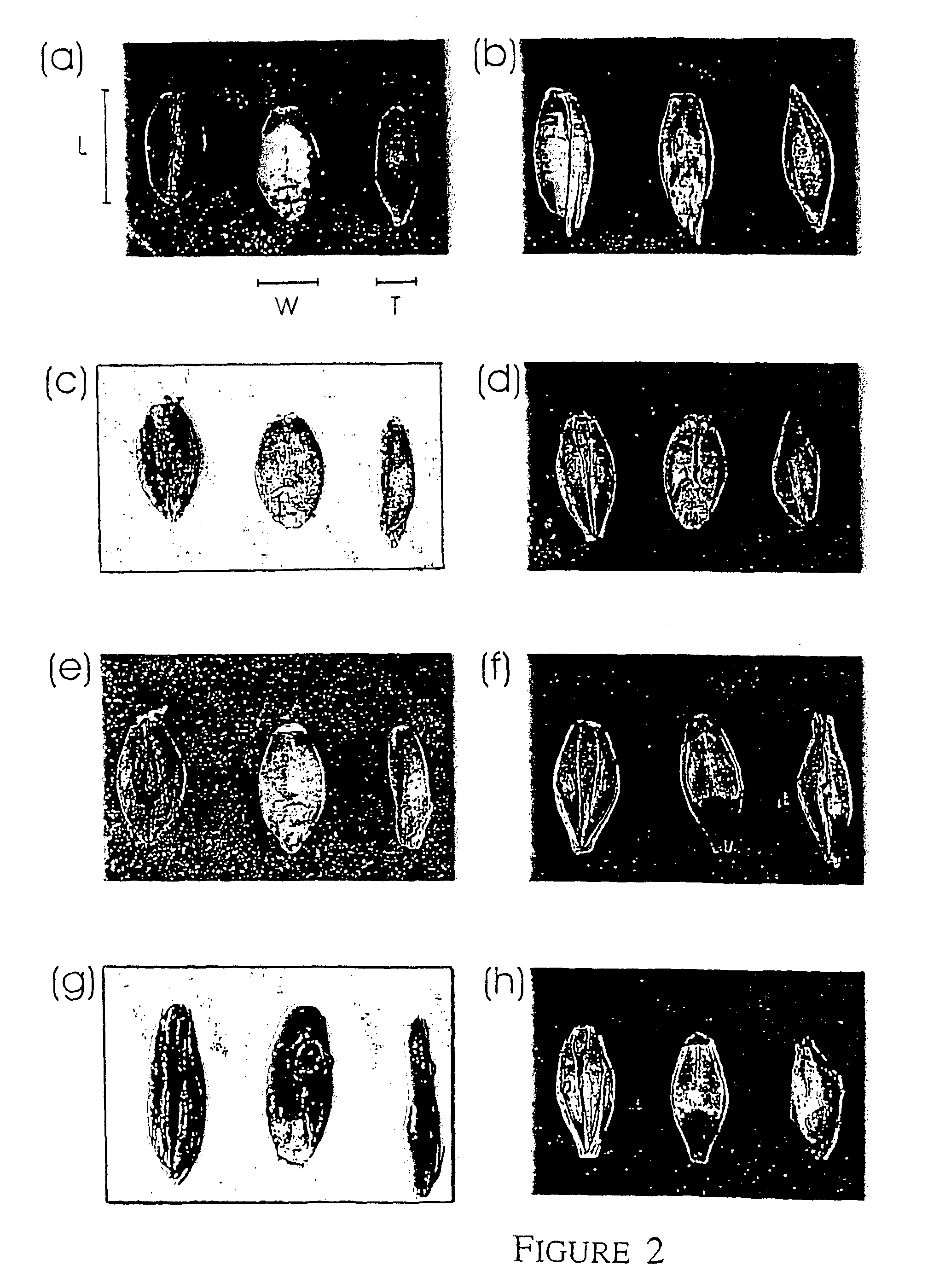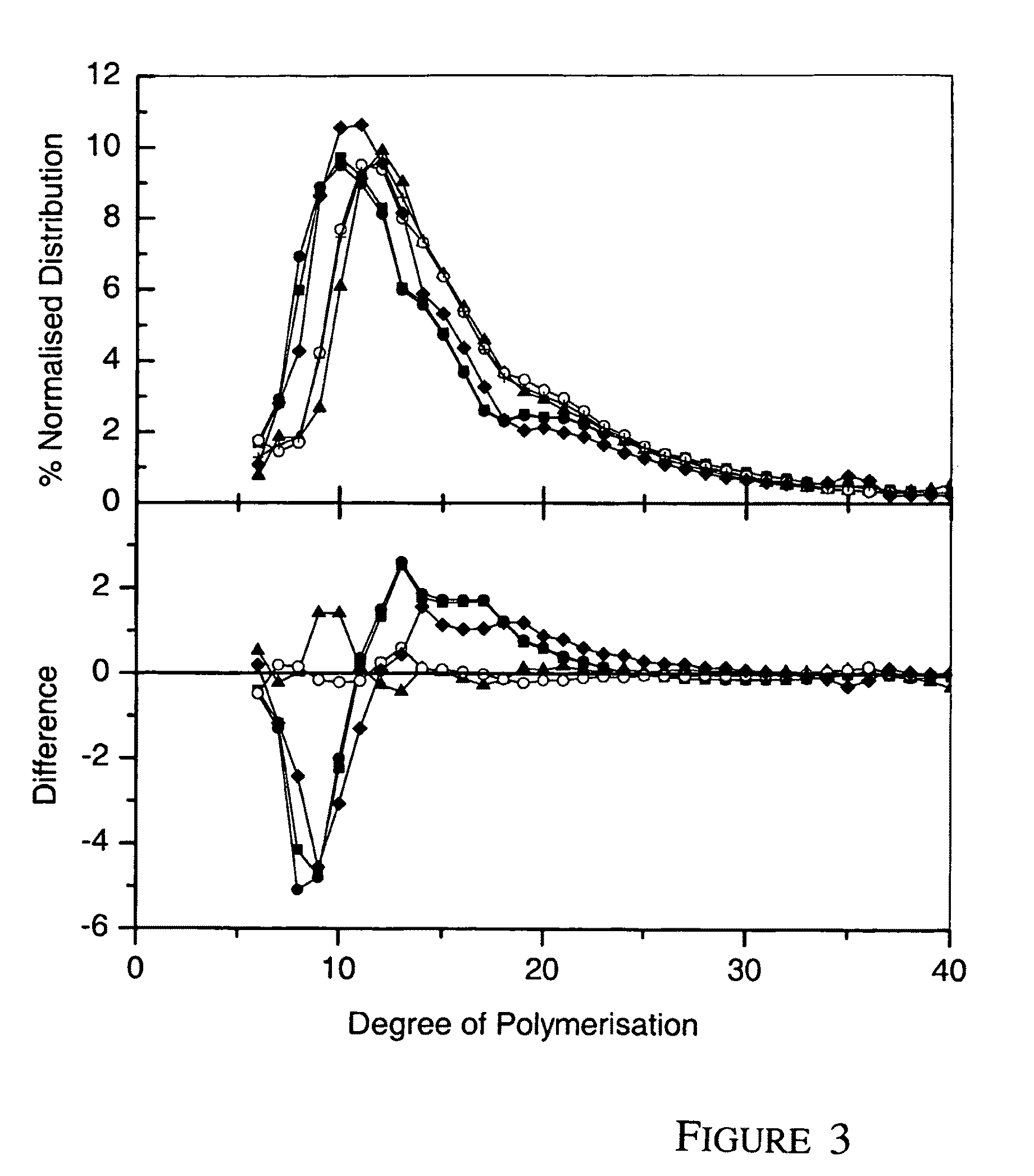Barely with reduced SSII activity and starch and starch containing products with a reduced amylopectin content
a technology of amylopectin content and activity, which is applied in the direction of food preparation, bakery products, and products containing high amylose starches, can solve the problems of affecting the quality of amylose, the perception of undesirable, and the significant disadvantage of high amylose starches in food processing, etc., to achieve the effect of reducing amylopectin content, reducing amylose content, and high relative levels of amylos
- Summary
- Abstract
- Description
- Claims
- Application Information
AI Technical Summary
Benefits of technology
Problems solved by technology
Method used
Image
Examples
example 1
Background
[0114]The synthesis of starch in the endosperm of higher plants is carried out by a suite of enzymes that catalyse four key steps. Firstly, ADPglucose pyrophosphorylase activates the monomer precursor of starch through the synthesis of ADPglucose from G-1-P and ATP. Secondly, the activated glucosyl donor, ADPglucose, is transferred to the non-reducing end of a pre-existing α1-4 linkage by starch synthases. Thirdly, starch branching enzymes introduce branch points through the cleavage of a region of α1,4 linked glucan followed by transfer of the cleaved chain to an acceptor chain, forming a new α1,6 linkage. Finally, genetic studies demonstrate that starch debranching enzymes are essential for the synthesis of normal quantities of starch in higher plants, however, the mechanism through which debranching enzymes act is unresolved (Myers et al., 2000).
[0115]While it is clear that at least these four activities are required for normal starch granule synthesis in higher plants,...
example 2
Design and Construction of Vectors
[0198]Regions of the barley SSII gene (as defined in FIG. 15) were cloned into vectors for transformation. Three constructs were prepared for each gene target, addressing the gene suppression strategies, (1) sense cosuppression, (2) antisense and (3) duplex-mediated suppression.
[0199]FIG. 16 illustrates the configuration of sequences in DNA constructs designed to suppress the expression of the endogenous target gene. The promoter may be selected from either endosperm-specific (such as High Molecular Weight Glutenin promoter, the wheat SSI promoter, wheat BEII promoter) or promoters not specific for the endosperm (such as ubiquitin or 35S). The construct may also contain other elements that enhance transcription such as the nos 3 element of OCS. The regions of DNA illustrated will be incorporated into vectors containing suitable selectable marker gene sequences and other elements, or into vectors that are co-transformed with vectors containing these ...
PUM
 Login to View More
Login to View More Abstract
Description
Claims
Application Information
 Login to View More
Login to View More - R&D
- Intellectual Property
- Life Sciences
- Materials
- Tech Scout
- Unparalleled Data Quality
- Higher Quality Content
- 60% Fewer Hallucinations
Browse by: Latest US Patents, China's latest patents, Technical Efficacy Thesaurus, Application Domain, Technology Topic, Popular Technical Reports.
© 2025 PatSnap. All rights reserved.Legal|Privacy policy|Modern Slavery Act Transparency Statement|Sitemap|About US| Contact US: help@patsnap.com



